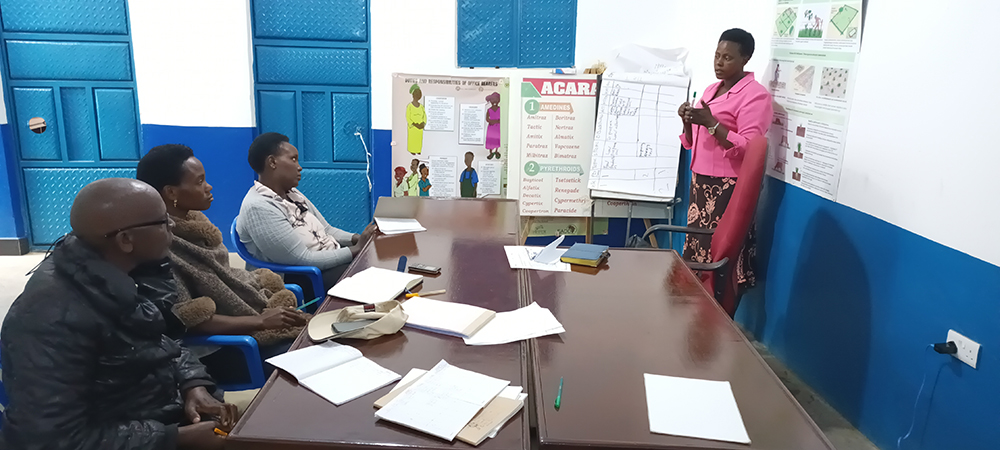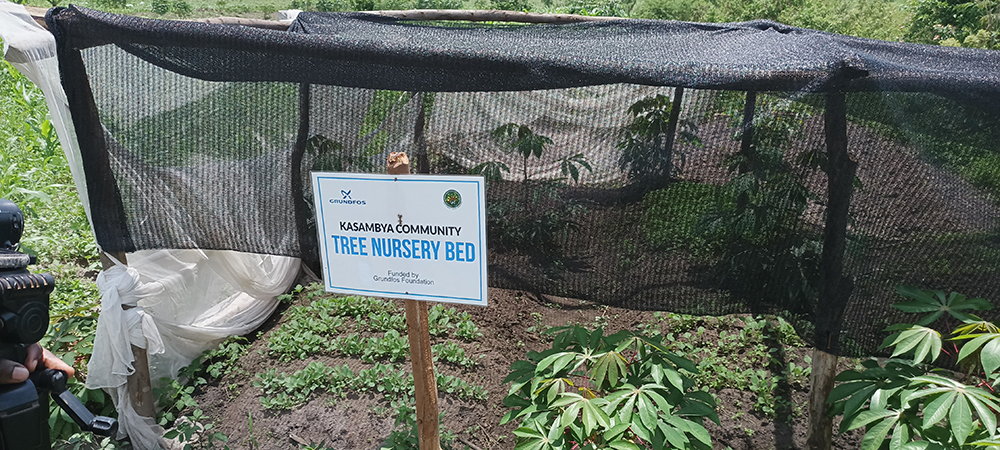Water Harvesting & Environment Conservation
Lauching Kyakabunga Water project
COVID 19 has further highlighted that water is life and it is a human right that everybody must have clean and sufficient water. Regular hand washing with clean water and soap was a key precaution that was recommended by World Health Organization against spread of COVID-19. Consistent hand washing required steady access and availability of adequate clean water that was virtually absent in Kyakabunga communities. Grundfos timely support helped installation of water infrastructures particularly communal water tap stands with reliable running water in Kyakabunga. This was a quick step that improved communities’ water access while expediting systematic changes that addressed sufficient water availability gaps comprehensively. As a result of this support and observance of hand washing preventive measure, Kyakabunga communities withstood the shocks of COVID-19 with no serious cases or death recoded. Also, improvement in water quality has reduced water related diseases as data from Kyakabunga Health Centre III indicates in its bi-annual report released last July 2022.
The water pipe system backed by solar power to deliver water and expanded Spring Valley Dam as a source with sufficient clean water all the year; is sustainable and proved to be cost effective for regular water supply to Kyakabunga Communities. Another notable outcome is the reduced burden of collecting water for children and women. Traditionally, the duty of fetching water relies on women and children in addition to other household core work! With the installation of water stand taps within family localities, workload for women and children has reduced, risks to sexual violence and attacks are condensed. Community schools reported an increase in regular attendance of class as children no longer trek long distances to collect water that caused late coming and absenteeism. Water availability also improved participation of school learners in recreational activities as they have plenty of water for drinking, bathing and washing of their clothes.
All the participating 618 families are growing a range of vegetables and fruits as a way of boosting family nutrition particularly as they are rich in vitamins. Cabbages, Spinach, Asparagus, Carrots and Eggplant are among the most common vegetables among beneficiaries. They are grown near compounds as “Kitchen gardens” for easy management including watering. Fruits that have been adopted include Passion fruits and a couple of grafted Mangoes, Avocados and Oranges for long term benefits and a way of project sustainability. Owing to enhanced nutrition awareness, over 85% of beneficiaries have made it a point to include vegetables on every meal they take.
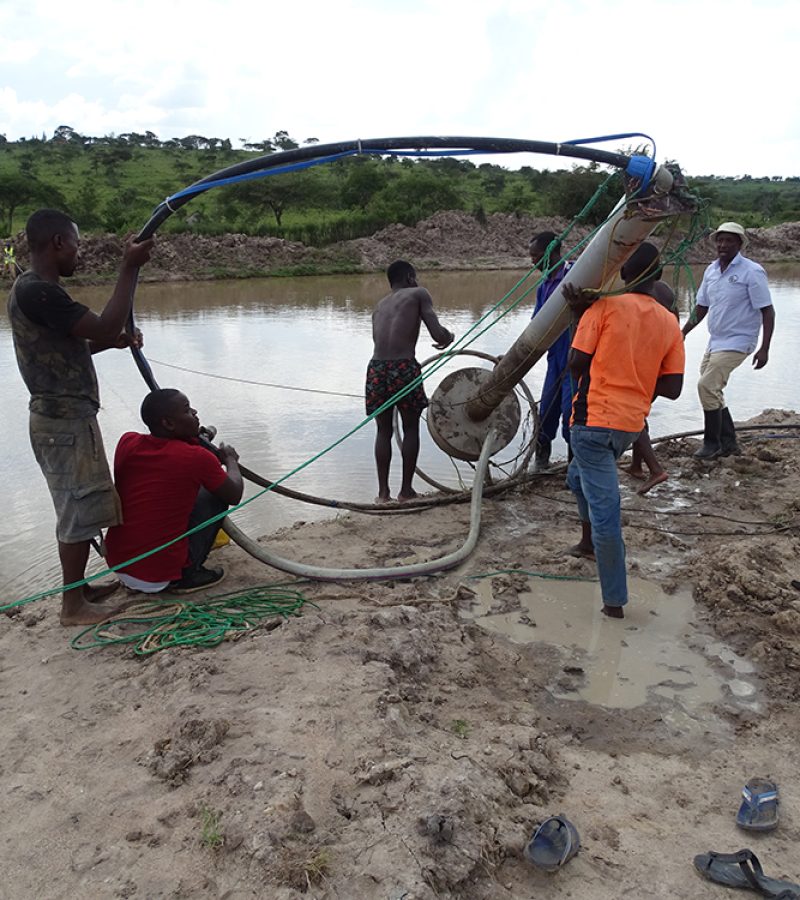
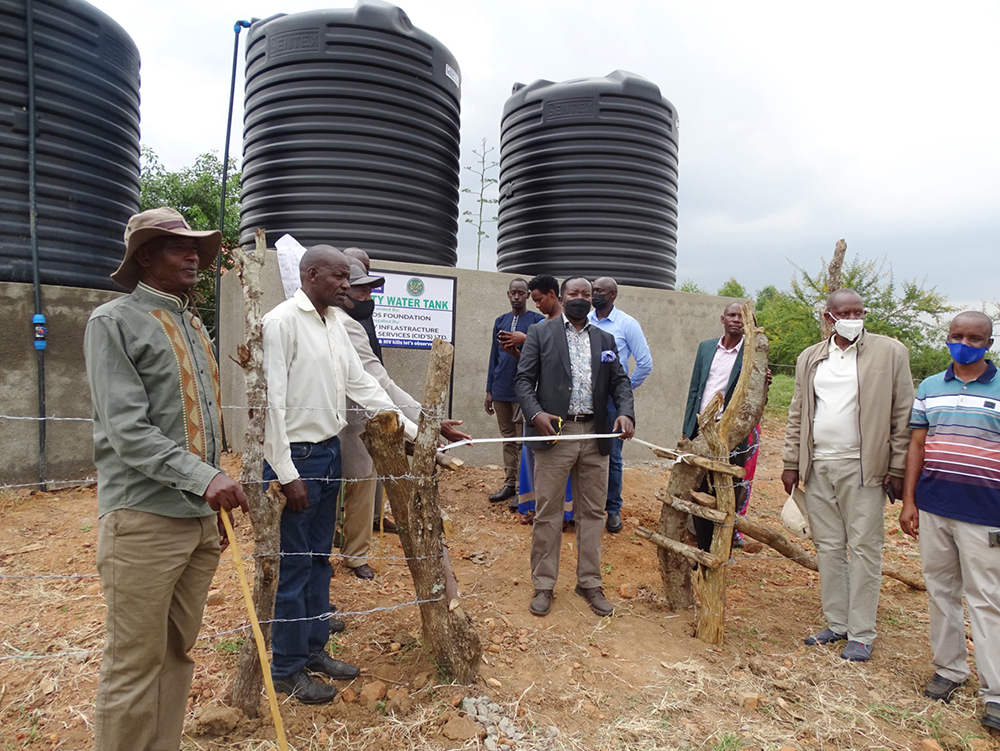
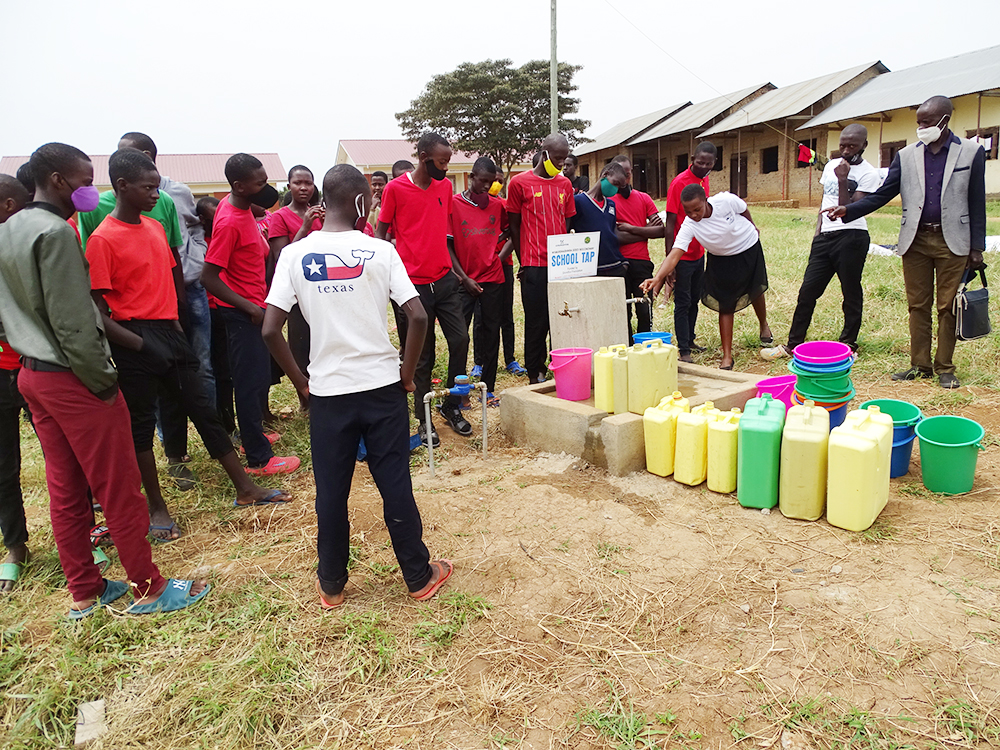
Evaluation of 2021-245 Kyakabunga Water Project- Uganda
Ever since this project started in October 2021 and was commissioned in February 2022, it has continuously supplied water to benefiting communities, school students and trading centre residents with less disruption. Beneficiaries have appreciated the stable supply of clean water that has significantly improved their domestic activities, personal hygiene and small scale food production. Many “Kitchen gardens” with various vegetables and fruits from established tree nursery beds have been introduced along home compounds for family nutrition improvement; the location of gardens makes them easy to irrigate and general maintenance. Cleaning of home utensils, plates, cups and personal hygiene has incredibly improved as a result of constant clean water supply and acquiring skills in hands and craft items, liquid and bar soap making . Concisely, benefiting communities are regularly accessing clean tap water on a daily basis for the first time in many decades, hands on trainings in nutrition, sanitation and hygiene awareness were conducted, beneficiaries are more mindful to wash their hands because of COVID-19 threat. All of these improvements and change of life style is attributed to availability of clean and safe water on a regular basis.
Water availability also encouraged full participation of school learners in recreational activities mostly sports as they bathe and wash their clothes with easy access to safe and clean water. Nominal fee collected from water users and sale of seedlings from tree nursery beds are saved on the project bank account and used for system maintenance/repairs and incentives to water user committee members for sustainability
